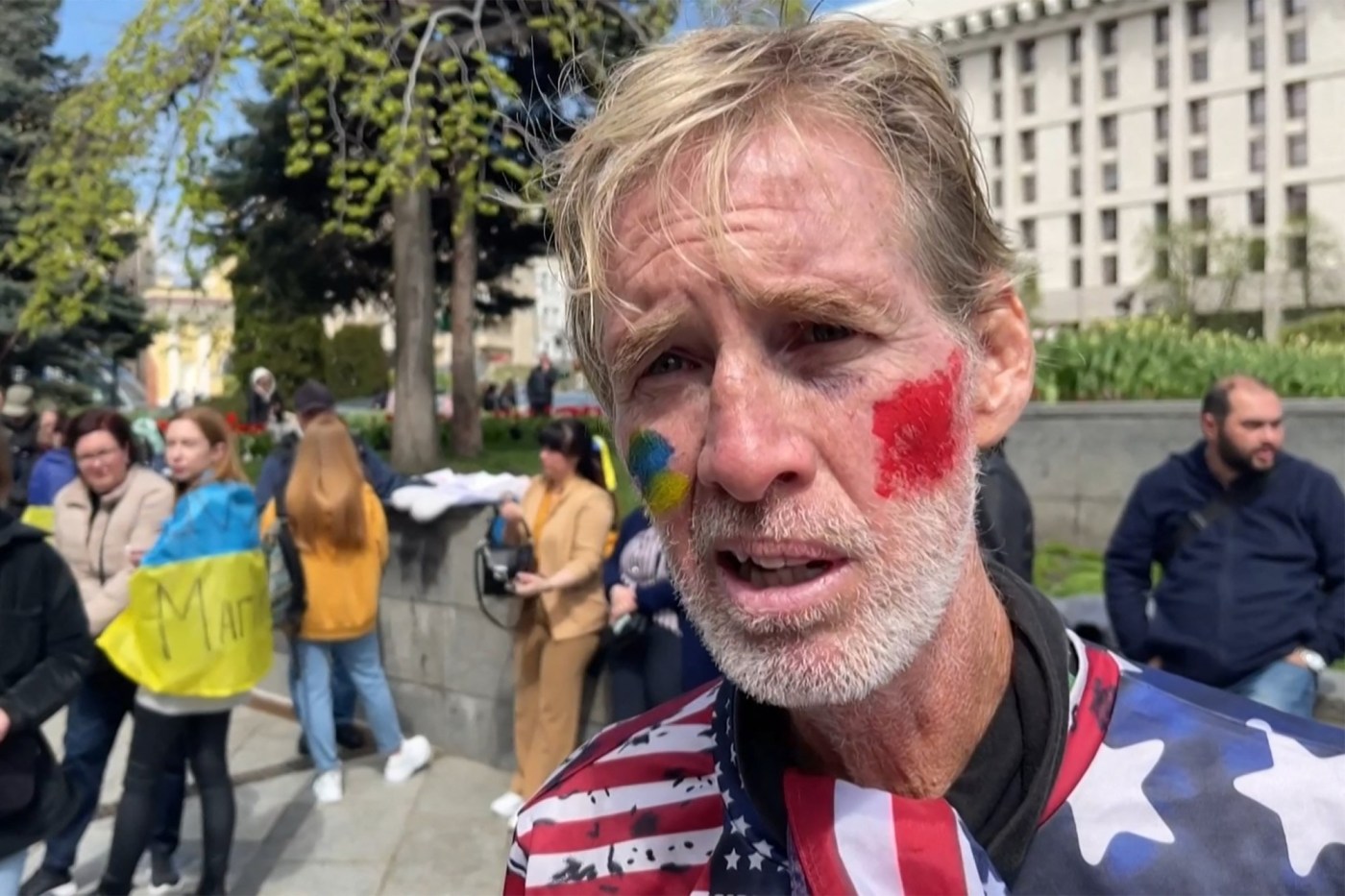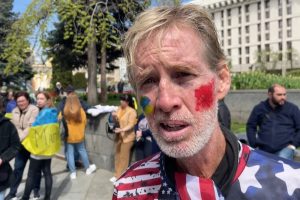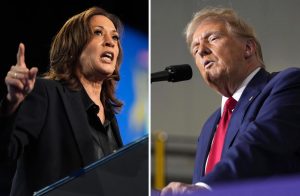
Turf war? Florida in apparent clash with feds over Trump golf gunman investigation
Now that a federal grand jury has handed up an indictment charging an alleged gunman with the attempted assassination of former President Donald Trump, a question remains about whether the state of Florida is being sidelined in its own investigation by a dispute with U.S. authorities over access to evidence.
In a Sept. 23 letter to FBI Director Christopher Wray and U.S. Attorney Markenzy Lapointe of the Southern District of Florida, state Attorney General Ashley Moody requested that both clarify whether the Justice Department intends to invoke a federal statute that reserves jurisdiction for federal law enforcement to investigate the case.
“If Federal investigative or prosecutive jurisdiction is asserted for a violation of this section, such assertion shall suspend the exercise of jurisdiction by a State or local authority, under any applicable State or local law, until Federal action is terminated,” the statute reads.
Moody, who authored the letter and posted it on her department’s website on Sept. 23, says both Lapointe and Jeffrey Veltri, special agent in charge of the FBI in Miami, raised the statute with two state officials shortly after the arrest of Ryan Wesley Routh, 58, who now stands accused of attempting to assassinate a presidential candidate, along with the commission of four gun-related violations. He has pleaded not guilty and is awaiting a jury trial without bail.
“To avoid any misunderstanding, I write to advise you that the State of Florida does not believe this provision has been properly invoked,” Moody told Wray and Lapointe of the jurisdictional limit.
She said Lapointe had raised the statute in a conversation about the case with Statewide Prosecutor Nick Cox, while Veltri discussed it with a state law enforcement official she did not identify.
“To be clear, I believe it would a grave mistake for the federal government to invoke this provision, and I urge you to cooperate with the state’s investigation rather than frustrate it,” Moody wrote. “In the meantime, however, we must advise our agents in the field and consider any legal course of action we may wish to take going forward.”
Moody asked Wray and Lapointe to respond to her letter by Sept. 27, which was 10 days ago.
It was not known if either official responded, or if they did, what they said.
Moody’s press secretary, Chase Sizemore in Tallahassee, did not respond to an emailed request for comment last week. Lapointe’s spokesperson at the U.S. Attorney Office in Miami, Sarah Schall, acknowledged receipt of a list of questions from the Sun Sentinel but had yet to provide responses.
Moody sent the letter shortly after Florida Gov. Ron DeSantis announced the state would conduct its own probe of the case against Routh, saying federal authorities had failed to appropriately charge the defendant.
After his Sept. 15 capture by local law enforcement on Interstate 95 in Martin County, Routh initially faced only a pair of federal weapons violations, charges that were seized upon by DeSantis and Trump as a dramatic understatement by the Justice Department of the gravity of events.
Two days later, on Sept. 17, DeSantis issued an executive order assigning the Office of the Statewide Prosecutor Florida to pursue a case against Routh in conjunction with the Florida Department of Law Enforcement and the Florida Highway Patrol.
“I have directed state agencies to move expeditiously and to provide full transparency to the public,” the governor said during a news conference, adding that he lacked trust in the ability of federal agencies to be transparent with the public about their investigation.
“‘Don’t you want to have investigative agencies that are just going to pursue this without any other agenda creeping in?” he asked. “I don’t think anyone can honestly claim that the federal government has been forthright and transparent about its past investigations.”
Critics called the DeSantis initiative a political exercise.
And on Sept. 24, a federal grand jury handed up an indictment charging Routh with the attempted assassination of a presidential candidate, in addition to four weapons-related charges. During a three-hour detention hearing the day before, Assistant U.S. Attorney Dispoto informed U.S. Magistrate Ryon McCabe that the government intended to “ask a grand jury to consider a charge that the defendant attempted to assassinate Trump,” which carries a “maximum sentence punishable by life in prison.”
To date, no state charges have been filed.
Routh was arrested after a U.S. Secret Service agent spotted a firearm tucked amid shrubbery near the Trump International Golf Club on Summit Boulevard. The agent, assigned to Trump’s security detail, opened fire, prompting the suspect to flee in an SUV. He was arrested by law enforcement authorities about 45 miles north in Martin County.
The Secret Service has said Routh did not fire any shots and never had Trump in his line of sight, although court testimony from an FBI agent indicated the suspect’s AR-15 style weapon had been set up about 100 feet from the sixth hole, and Trump and his entourage had reached the fifth fairway during their afternon outing on Sept. 15.
The incident occurred only two months after Trump was grazed by a bullet and a bystander was killed at a rally in Butler, Pennsylvania. The gunman, who had stationed himself on the roof of a nearby building, was killed by law enforcement.
FBI investigators are shown at Trump International Golf Club in West Palm Beach on Sept. 16, one day after the arrest of suspect Ryan Wesley Routh, who has been charged with the attempted assassination of former President Donald Trump. (Amy Beth Bennett / South Florida Sun Sentinel)
Hands off?
Since the governor’s directive, it is unclear how much of an investigation state authorities have been able to conduct.
In her letter to Wray and Lapointe, Moody noted that state and federal agencies have frequently collaborated on criminal investigations, and that the alleged attempt on the former president’s life at the Trump International Golf Club in West Palm Beach was of high importance to Florida because it took place within the state.
“Because the second assassination attempt against President Trump occurred in Florida and was perpetrated against a Florida citizen, the State understandably desires to investigate violations of its own laws, including attempted murder,” Moody wrote.
“In light of the above, I was surprised to learn that FBI and DOJ officials have indicated they may not cooperate with the state of Florida or allow the state access to evidence already collected by federal agencies,” she wrote.
To cooperate, or not cooperate
In separate interviews, three people not involved in the Routh investigation agreed that state and federal officials have a history of collaborating in a variety of criminal investigations, including cases ranging from narcotics trafficking and money laundering to organized health care and securities frauds.
Palm Beach County State Attorney Dave Aronberg, whose office is not involved in the investigation, told the South Florida Sun Sentinel last week that while it is not unusual for federal and state agencies to collaborate, “what is unusual is a competing investigation based on mistrust, and that’s what the state has launched.”
“Fortunately, the state investigation is being led by Nick Cox who is a professional and doesn’t do politics,” Aronberg said. “He’s going to follow the evidence and the law. He’s a very likable person so he is going to have a good relationship with Markenzy Lapointe, who is another good guy.”
Aronberg said he doesn’t see the emergence of a “turf war.”
“Because the trial is going to happen sooner than later, the state can wait until the federal prosecution is completed before going full force into its own investigation,” Aronberg said. “I think the state will move forward to a limited extent. They will avoid any direct conflicts. For example, the state is not going to give immunity to witnesses because that could affect the federal case. Also, the state is going to depend on the federal government to access key evidence, including an interview with the Secret Service agent who could be a victim in all of this.”
Robert Jarvis, law professor at Nova Southeastern University in Davie, said it’s customary that the state “stands down if the federal government asserts jurisdiction. But the state does not have to do so — as a separate sovereign, it can prosecute the individual but normally does so only after the federal government has finished prosecuting the individual.”
“The U.S. Supreme Court has made it clear that a person can be prosecuted for the same crime by both the federal and state governments without violating the Constitution’s Double Jeopardy clause because of something known as the ‘dual sovereign doctrine,’” he added.
But Miami criminal defense lawyer David Weinstein, a former federal prosecutor, called a parallel investigation by the state a “bad idea.”
“They should be working in concert with the federal authorities,” he said. “The state case is going to take much longer. To have a state law enforcement agency re-interviewing the same witnesses is now going to create different statements by the witnesses and it’s a way for defense counsel to create reasonable doubt.”
Indefinite delay sought
In the end, the state might end up with all the time it needs to gather and evaluate evidence for whatever case it seeks to mount as federal prosecutors, apparently overwhelmed by the volume of evidence it has collected, need more time to evaluate all of it.
The trial, initially scheduled for Nov. 18 by U.S. District Judge Aileen Cannon in Fort Pierce, is now the subject of a request for a delay by the government.
Cannon, who dismissed the U.S. Government’s classified documents case against Trump last summer, is entertaining a prosecution motion to delay the Routh trial until an unspecified date.
On Thursday, Cannon responded to the request by giving Routh’s public defenders until Oct. 9 to file a waiver of the Speedy Trial Act, “along with a clear statement of Defendant’s position with regard to the ends of justice being served by the United States’ request.”


